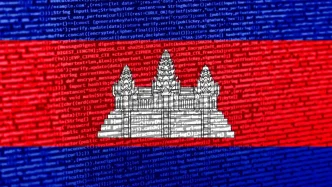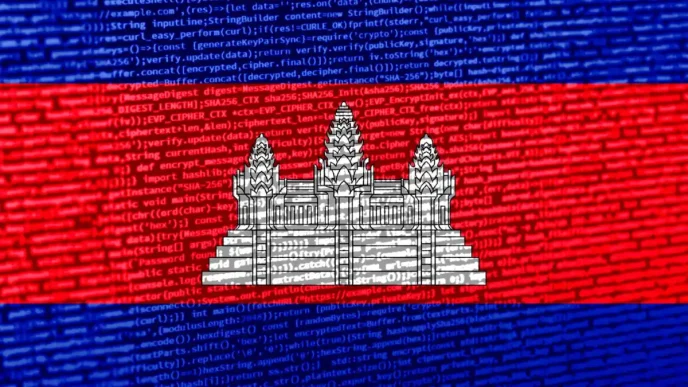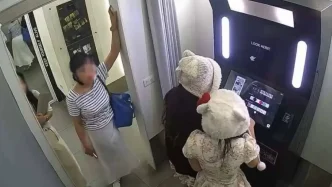In a dramatic turn of events, former Philippine President Rodrigo Duterte, now detained at the International Criminal Court (ICC) in The Hague, faces mounting challenges to a potential interim release as his supporters engage in social media campaigns and street protests. Legal experts warn that these actions, including online attacks targeting the presiding judge, could undermine Duterte’s plea for temporary freedom ahead of his confirmation of charges hearing scheduled for 23 September.
Duterte, arrested on 11 March at Ninoy Aquino International Airport in Manila upon returning from Hong Kong, is accused of crimes against humanity linked to his administration’s brutal anti-drug campaign from 2016 to 2019. The controversial “drug war” resulted in thousands of deaths, with official government figures citing at least 6,000 fatalities, while human rights groups and ICC prosecutors estimate the toll could be as high as 30,000, many allegedly through extrajudicial killings.
Social Media Attacks and Judicial Pressure
A wave of online activity by Duterte’s supporters has targeted ICC Pre-Trial Chamber I Presiding Judge Iulia Motoc, with reports of her LinkedIn posts being inundated with appeals for the former president’s release. This digital barrage, described by some as “spamming,” has raised concerns among legal observers about attempts to influence the court.
Joel Butuyan, an ICC-accredited lawyer, addressed the issue during an online forum hosted by the Foreign Correspondents Association of the Philippines on 16 March. “I agree that it’s going to affect the judges, especially on the issue of interim release, because the judges will see that the force of the Duterte camp is so powerful that even the ICC could be subjected to bullying, harassment, and attempts to manipulate,” Butuyan stated. He suggested that such actions could impact the temperament of the judicial panel, potentially swaying their decision on whether Duterte poses a risk if released temporarily.
The concept of interim release under ICC rules allows a detained individual to be freed pending trial under strict conditions. However, judges must consider factors such as the risk of flight, potential tampering with evidence, or intimidation of witnesses. Butuyan warned that the current online and offline actions by Duterte’s supporters might signal to the court that these risks are significant.
Protests Fuel Political Unrest
Beyond the digital realm, physical demonstrations in Manila and Davao City—Duterte’s political stronghold—have added to the tense atmosphere. On 15 March, hundreds gathered for a prayer rally at Liwasang Bonifacio in Manila, voicing support for the former leader and decrying his arrest as unjust. Similar protests have erupted since his transfer to The Hague, with some calling for the Philippines to reconsider its withdrawal from the ICC, a decision enacted by Duterte in 2019 after the court began investigating his drug war policies.
Butuyan argued that this political unrest could further damage Duterte’s chances of interim release. “One of the essential requirements of any application for interim release is that there should be an extreme and urgent necessity,” he explained. “With it, there must not be the risk of flight, tampering with evidence, or the potential intimidation of witnesses. With the ongoing political unrest, I think all these risks are present, and I’m sure the ICC judges will take note.”
The unrest also highlights the polarised nature of Duterte’s legacy in the Philippines. While his supporters view him as a strongman who tackled crime with an iron fist, critics and human rights advocates accuse his administration of sanctioning widespread abuses. The ICC’s investigation focuses on whether these actions constitute crimes against humanity, a charge that carries profound implications for accountability in the region.
The Drug War’s Grim Toll
At the heart of the case is Duterte’s signature policy, the so-called “war on drugs,” launched shortly after he took office in 2016. The campaign promised to eradicate narcotics through aggressive law enforcement, but it quickly descended into violence. Official data from the Philippine government acknowledges at least 6,000 deaths during police operations, though this figure is widely contested. Human rights organisations, alongside the ICC prosecutor, have cited estimates ranging from 12,000 to 30,000 deaths, many involving alleged extrajudicial killings by police or vigilante groups.
These killings often targeted suspected drug users and dealers, with reports of summary executions and little regard for due process. Families of victims have recounted harrowing stories of loved ones gunned down without evidence or trial, fuelling international outrage. The ICC’s involvement marks a rare instance of a former head of state being held to account for such policies on a global stage, though the court’s jurisdiction over the Philippines remains contentious following the country’s exit from the Rome Statute, the treaty underpinning the ICC.
Legal and Political Implications
Duterte’s arrest and transfer to The Hague on 11 March, followed by his initial pre-trial appearance on 14 March, have reignited debates over the Philippines’ relationship with international justice mechanisms. Current President Ferdinand Marcos Jr. has faced calls to rejoin the ICC, especially as the sixth anniversary of the country’s withdrawal from the treaty was marked on 17 March. However, Marcos has so far resisted such pressure, maintaining a delicate balance between domestic political forces and international expectations.
For Duterte, the road ahead is fraught with challenges. His legal team may file for interim release in the coming months, but the ICC’s stringent criteria—coupled with the recent actions of his supporters—could complicate their case. Legal analysts suggest that the court will weigh not only the personal conduct of the accused but also the broader environment in the Philippines, including the potential for unrest or interference in the judicial process.
If interim release is denied, Duterte will remain in detention at the ICC facility in The Hague until at least the confirmation of charges hearing in September. A conviction on crimes against humanity could result in a lengthy prison sentence, sending a powerful message about accountability for state-sponsored violence. Conversely, an acquittal or dismissal of charges would likely embolden Duterte’s base, potentially reshaping the political landscape in the Philippines.
A Polarised Nation Watches
The case also underscores the deep divisions within Philippine society. Duterte’s tenure as president was marked by populist rhetoric and a hardline stance on crime, earning him both fervent loyalty and fierce opposition. In Davao City, where he once served as mayor, murals and banners still celebrate his legacy as a protector of the people. Yet in urban centres like Manila, activists and victims’ families continue to demand justice for those lost to the drug war’s violence.
As the ICC proceedings unfold, the actions of Duterte’s supporters—whether online or on the streets—will remain under scrutiny. While intended to rally support for the former president, these efforts may inadvertently strengthen the case for his continued detention. For now, the eyes of the Philippines and the international community are fixed on The Hague, where a historic reckoning for one of South East Asia’s most controversial leaders is taking shape.
The outcome of Duterte’s plea for interim release, and ultimately the charges against him, will reverberate far beyond the courtroom. It could set a precedent for how international justice intersects with national sovereignty, particularly in a region where leaders often evade accountability for human rights abuses. For the families of the drug war’s victims, the case offers a glimmer of hope for closure, while for Duterte’s allies, it represents a battle for his legacy and freedom.
In Manila, the prayer rallies and protests are unlikely to abate anytime soon. As one supporter at Liwasang Bonifacio declared on 15 March, “He fought for us; now we fight for him.” Whether that fight will help or hinder Duterte’s cause at the ICC remains to be seen, but it is clear that the stakes could not be higher.














